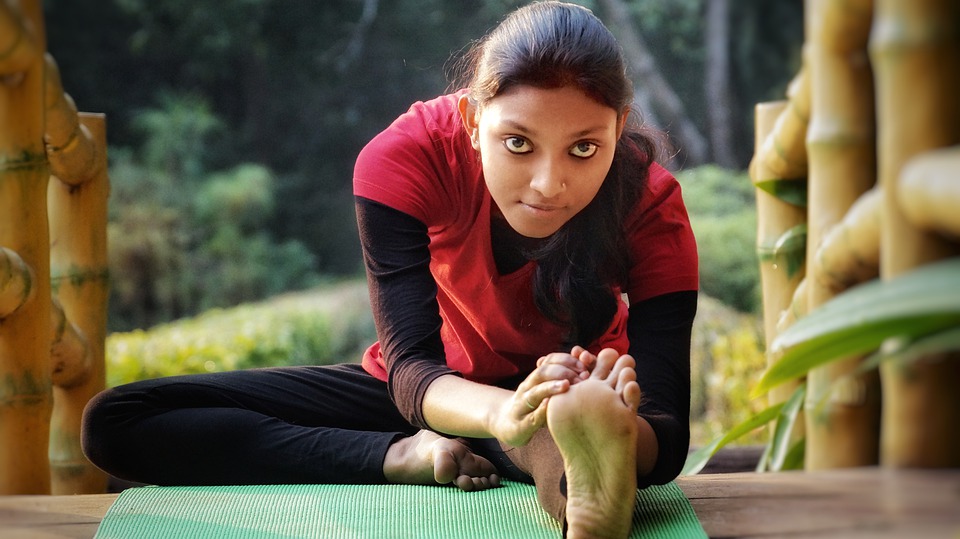4-minute read. Posted by Ragu Ram, Certified Yoga Trainer & Director, Meiyogam, Yoga Institute in Chennai, India

Better immunity comes with a calm mind. It is well-known that meditation can get us there. But many people find it hard to adopt such a powerful tool. Let’s understand how meditation is an essential tool for immunity, 6 hurdles to meditation and approach to overcome them as described by Patanjali, the father of modern yoga and author of yoga sutras.
Meditation- An Essential Tool For Immunity
Meditation & Happy Hormones
The physiology is complex and interconnected. The nervous system and immune system work together to keep us healthy and happy. When a person is stress-free, our body releases ‘happy’ hormones (Dopamine, Serotonin to name a few). During meditation, these happy hormones are released in large amounts.
Happy Hormones & Immunity
Dopamine promotes the formation of antibodies by the B-Lymphocytes during a specific immune response to an infection. Serotonin induces secretion of interleukins (molecules required to fight viral infections in specific) and activation of T-Lymphocytes.
Now that we understand how meditation has a direct impact on your immunity, let’s look at what is blocking us to get started according to Patanjali.
6 Hurdles To Meditation
1. Vyadi – a state of dis-ease. When we are grappling with physical pain or discomfort like chronic illnesses or headaches, it is hard to do even simple chores. Therefore, to create a conducive state for meditation, you need to promptly address physical health.
2. Stayanam – Lack of interest or enthusiasm. Now we reach a state when we are physically at ease. But we are not convinced that meditation is the right tool for us. Due to external influences we may hold back and try without conviction. That stops them from experiencing the full benefit of meditation.
3. Samshayam – too many questions or doubts. Am I following the most effective meditation technique? Will it work for me? What changes should I expect? How long will it take? According to Patanjali, questioning is not wrong. But premature or constant evaluation will stop you from getting the results.
4. Pramadam – carelessness or negligence. We are convinced and have identified our meditative path. But beyond that we become complacent and don’t apply this tool actively. We ignore the nuances and don’t look inward to answer questions like what within me made me angry/sad/agitated or am I operating from a space of need or want. If we don’t actively account for these nuances within ourselves, the meditative experience will be hindered.
5. Alasya – laziness. We have a fair amount of self-awareness and understand how meditation helps. But we lack commitment to stay at it. We start with one cheat-day and soon, we lose consistency that stops meditation from becoming a part of your lifestyle.
6. Avirati – overdrive of senses. When meditation is not regulating your mind and body, it is likely that we are driven by our senses. Classic examples are binge watching or binge eating. This pushes us to a state of vyadi or disease, thus creating another hurdle.
Crossing The 6 Hurdles To Meditation
- Overcoming vyadi/disease – Review lifestyle and understand the root cause of discomfort beyond removing just the symptoms. Ayurveda has a holistic approach to do so. (Check out our session Turning Health Resolutions Into Reality With Ayurveda)
- Overcoming stayanam/ creating interest – Surround yourself or get connected to support groups who have benefited for positive reinforcement.
- Overcoming samshayam/ questions – Read! Books like Upanishads or Autobiography of a yogi to help in your quest for knowledge. Be open and hear out to what spiritual leaders have to share. There may be one school of thought that is more appealing.
- Overcoming pramadam / carelessness – Self inquiry regularly. Go beyond the basic emotions of anger, sadness etc. to learn what is internally triggering such reactions.
- Overcoming alasya/ laziness – Include meditation in the daily routine. Add calendar reminders. Use habit tracker apps until we fully internalize it.
- Overcoming avirati / overdrive of senses – Be aware when indulging in sensory needs. As you keep up with your commitment to meditation, the body will physically moderate itself, keeping a check on the senses.
Keep The Feedback Channels Open
Remember to pat yourself when you cross hurdles to meditation. But be aware that we do fall out of practice and again are back to facing these hurdles at any time. So keep the feedback channels open to check yourself.
Identify your hurdle and come up with your game plan for your mental pause. Meditation is not a fancy hobby, it is an essential building block for building immunity.


